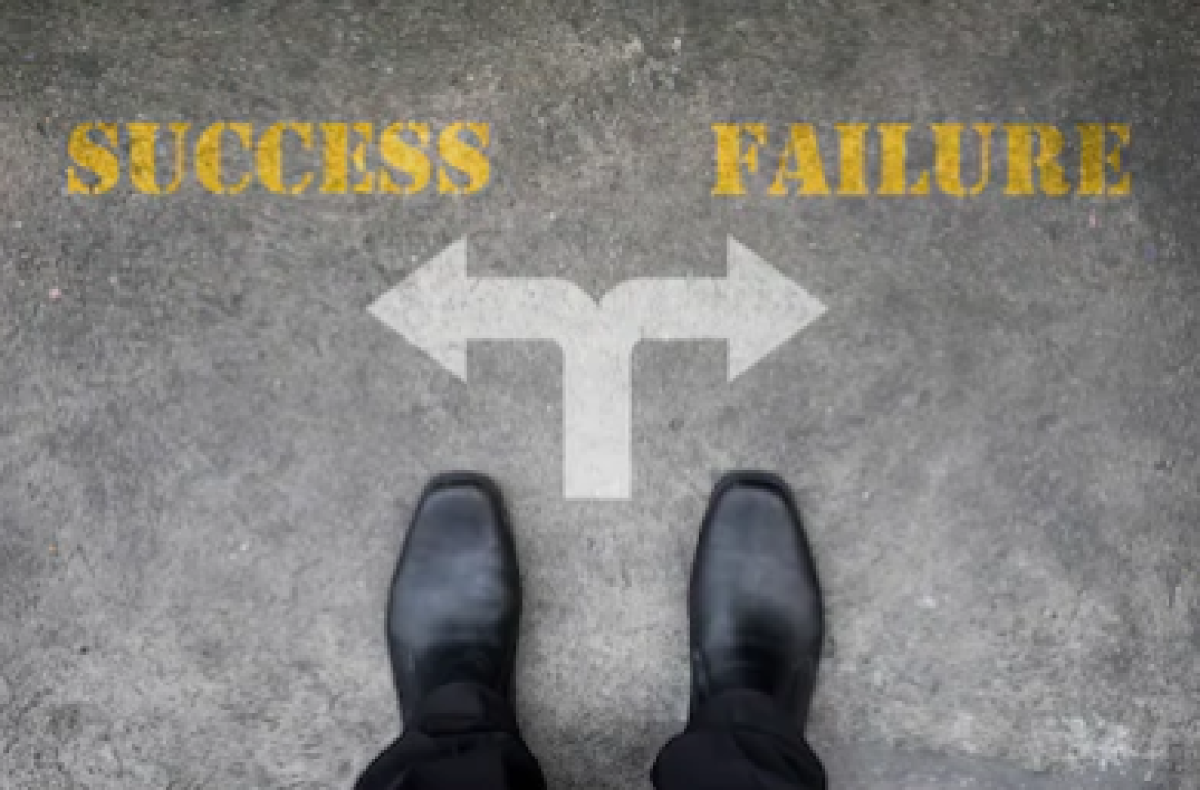- HubPages»
- Health»
- Mental Health»
- Emotions
Do You Beat Yourself Up With Negative "Self-Talk"?

Is Your Self-Talk So Negative That You’ve Become Your Own Worst Enemy?
I believe that anyone can be pessimistic about some things, sometimes. Even when it comes to estimating your own potential, I believe you can think less of you than you deserve, without being a card-carrying pessimist. Although negative self-talk is pessimistic, you are not necessarily a board-certified-card-carrying pessimist, just because you engage in negative self-talk, from time to time. Now, if you do it all the time, or anytime you talk to you about you, then—well, that’s a different matter.
Being a pessimist means someone is usually or always expecting the worst possible outcome. Pessimism is defined in at least one dictionary as “A tendency to stress the negative or unfavorable or to take the gloomiest possible view.” It is related to the idea or the belief that the bad, negative, or evil that happens in the world will always outweigh the positive or the good. With that said, you don’t have to be a pessimist, or even have a mostly pessimistic point of view about life in general, in order to engage in “temporary pessimism,” or occasional negative self-talk. If all of your self-talk is always negative, however, then perhaps you are a pessimist.

Is it possible to stop being a “Negative Ned or Nelly?”
If you want to stop the negativity, the constant beating up on you, by you, then you can choose to do it. One thing you’ll need to do is to surround yourself with positive-minded people. A lot of exposure to negative people, those who see the glass always as half empty, can sometimes influence any of us to “trip the switch” in our own minds that turns on our negative thinking. And negative thoughts are what lead to negative self-talk. There is a saying that both the optimist and pessimist are right. If you are an optimist, you usually expect the best, most positive outcome in every situation. If you are a pessimist, you usually expect the worst, most negative outcome in every situation. And in most situations, both the optimist and the pessimist can find evidence that their predictions have come true. In this way, both optimism and pessimism are self-fulfilling prophecies.
Since unemployment is at record highs in our country, let’s take as an example someone who has been fired or laid off from a job. When this happens, for most of us, it’s one of the worst things that could possibly happen in our lives. Even if you hated your job, the initial and even natural human response is probably going to be shock, surprise, hurt, and/or feelings of loss. Still, when something like this occurs, it becomes your challenge to find a way to go on. Usually, there is little or nothing you can do to get the employer who fired or laid you off to reconsider his or her decision, so the best course of action is usually to accept what has happened, and then to do all that is possible to move on; to begin doing whatever you can to make the best of a bad situation.

Is your glass half empty? Or half full?
In a situation such as the one I described in the paragraph above, a pessimist would only want to see the bad, to dwell on the negative events that have occurred, and to predict that only bad things are likely to happen in the future. The pessimist would soon talk him or herself out of looking for work or from seeing time away from working as an opportunity to pursue other things. An optimist, on the other hand, might brood for a time over the loss of a job, but would soon choose to view time away from the work-a-day world as a chance to pursue a long-desired dream, or to find ways to further his or her education.
A pessimist would most likely view financial challenges that come along with the loss of primary income as an insurmountable obstacle to anything and/or everything progressive, from preparing a good resume, to searching for another job. Any excuse will do for the pessimist. No matter how legitimate or illegitimate, it will provide the pessimist with good fodder for self-defeating self-talk, and good grounds for self-defeating inactivity. The optimist facing the same set of circumstances would, after a time of soul-searching and thoughtful consideration of alternatives, get busy looking for ways to change his or her situation from negative to positive.

Self-Talk: Turning Negative to Positive
Negative Thoughts Equal Negative Attitude and Negative Life.
An attitude of pessimism, if allowed to persist, will indeed become a self-fulfilling prophecy because the pessimist always talks him or herself out of doing what needs to be done in order to create a different reality. On the other hand, the optimist in the same situation would strive to see the good, and to dwell on the positive side of things, despite events that have occurred. Financial challenges will be viewed merely as bumps in the road that can be worked around with a bit of creative thinking and planning. For example, if the optimist found that he or she could not afford to pay a service to prepare a professional resume in preparation for job seeking, then he/she might simply scour the Internet looking for good resume examples, and then do his/her best to polish and prepare a resume that could stand out even among the best. No excuses would be allowed to stop him or her from believing that things are going to turn out well, ultimately, and for the best.
Positive thoughts then become fertilizer for positive self-esteem, and positive inner dialogue feeds and fuels esteem. When these things come together, they will manifest as uplifting, powerful, soul-nurturing self-talk. And that nurturing self-talk will energize and propel the optimist toward an unlimited number of positive and rewarding activities and possibilities.
It’s true. A positive attitude, if allowed to persist, will ignite positive self-talk, and will eventually become a positive path to a better outlook on the future. And it all happened because the optimist choose to believe the only course of action, in view of negative circumstances, was to do whatever was needed in order to create a new reality. There is an old saying that “you are what you eat,” but, in actuality, you are what you think. You are what you believe you are, and you can do what you believe you can do, to a reasonable and rationale degree. I mean, while the words of R. Kelley’s popular song may say, “I believe I can fly,” we all know it is meant metaphorically, unless someone is either already an airplane pilot, or is in training to become one. But even though you can't literally fly like a bird, you can allow your thoughts to sail toward positive, rather than negative, thoughts about what the future holds for you. You truly are what you think you are, and you can or cannot do what you think you can or cannot do.
What is the secret that optimists know, and pessimists don’t believe?
Several years ago, much ado was made of what became a best-selling book titled The Secret. In the final analysis, there was nothing new at all about the secret. Its main caveat, in fact, wasn’t even a secret. Those who read the book or watched the video found out that there was nothing magic or mysterious about the secret. The secret, which is also referred to as the Law of Attraction, was revealed to be simply the idea that in order to achieve or accomplish something, you must simply believe that you can.
I’m not stating my point of view to take anything away from the powerful lessons contained in The Secret. Rather, I am merely pointing out that the secret that was “uncovered” was not something that had been hidden or kept away from us. It was actually an age-old belief that was being presented in fancy new clothing. But the presentation worked. It captured the world’s attention, and many people learned about the Law of Attraction who might never have read about it in other books.
Positive Self-Talk Begins With Positive Thinking
World-renowned author, Dr. Norman Vincent Peale, wrote about the Law of Attraction in his book, The Power of Positive Thinking, a book first published in 1952. Dr. Peale, in his book, said, “Expect the best, and not the worst, and you will attain your heart’s desire. It is what is in the heart of you, either good or bad, strong or weak, that finally comes to you.”
The so-called secret is also contained throughout the New Testament in biblical scripture, in passages such as the Book of Mark, 9:23, which simply says, “If you canst believe, all things are possible to him that believeth,” and Matthew 9:29, says, “According to your faith, be it unto you.”
The most important and most wonderful thing about what was repackaged and brought to us in The Secret, however, is that the so-called secret the book talks about is absolutely and positively true. It was true in the days of the Old and the New Testament, it is still true today, and will always be true.
"Jesus said to him, If you can believe, all things are possible to him that believes." Mark 9:23 (KJV)
"By faith we understand that the universe was created by the word of God, so that what is seen was not made out of things that are visible." Hebrews 11:3 (NIV)
"Now faith is the substance of things hoped for, the evidence of things not seen." Hebrews 11:1 (KJV)
"For he spoke, and it came to be; he commanded, and it stood firm." Psalm 33:9 (NIV)
It is no secret. Learning to see yourself in a positive light, and deciding to believe in you and in your abilities is something everyone needs to learn how to do. Learning to nourish and keep a positive attitude, to think positive thoughts, and to banish fear and disbelief will open new doors of opportunity. Discovering and using your courage to believe that you can and that you will accomplish your goals can give you a new perspective on life. And finally, learning to engage in positive self-talk, is truly the age-old, tried-and-true real and everlasting, biblical and sound secret to attracting positive things into your life.
This content is accurate and true to the best of the author’s knowledge and is not meant to substitute for formal and individualized advice from a qualified professional.
© 2012 Sallie B Middlebrook PhD








